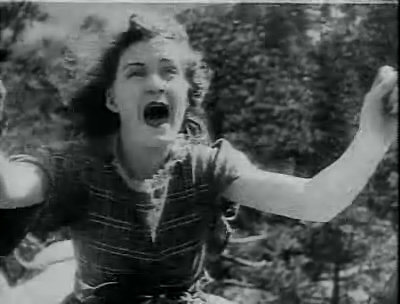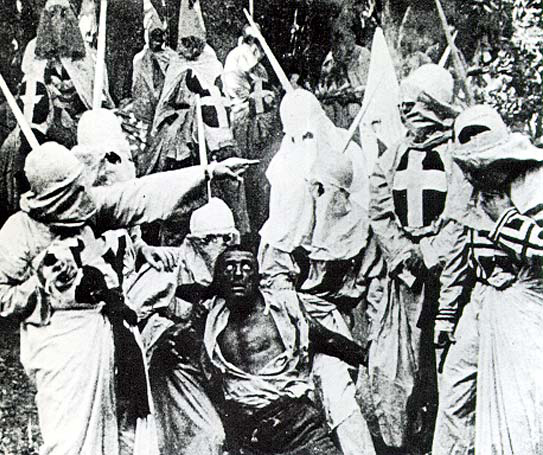White Father Killing Daughter's Black Boyfriend is Really About White Womanhood

By:
A judge declared a third mistrial in the case of a white former police officer who killed his daughter's unarmed black boyfriend in Oklahoma, and this case points to an old form of racism and sexism that still persists in the United States.
On Monday, Tulsa District Attorney Steve Kunzweiler released a statement expressing disappointment that Judge Sharon Holmes declared a mistrial after only a few hours of deliberation in the death of Jeremy Lake.
"As I previously stated following the trial of Mr. Kepler, I am disappointed in the court’s decision to declare a mistrial after only 2.5 hours of deliberation by the jury," the statement released to local news media read. "Our system of justice is premised upon the finality of judgment. Justice for Mr. Kepler and for Jeremy Lake demands it."
The jury had the option to convict 57-year-old Shannon Kepler, who retired from the Tulsa police force after the killing, of first-degree murder or manslaughter but deadlocked six to six. It's unclear, at this point, how the jury was split on the charges.
The Tulsa World reported that Lisa Kepler testified that her parents dropped her off at a homeless shelter, after kicking her out of their house for disobeying them. She said she met Lake at the shelter because he often visited there, and eventually she went to stay with him at his aunt's house nearby because she was afraid.
“Once you’re 18 at the homeless shelter, you’re shark bait," she reportedly testified. "Everybody wants to sink their teeth into you, you know what I mean?”
Her father, who was an off-duty Tulsa police officer when he killed the 19-year-old black man in August 2014, testified that he started searching for his daughter after she made a Facebook post about dating Lake, according to Tulsa World. Shannon reportedly used the police database to search for information about Lake, and he said in his testimony that he was willing to break department rules to protect his daughter, and he believed Lake was dangerous.
Lisa testified that after she and Lake went to give food and water to some homeless people under an overpass, her father's car was drove up to the residence where Lake and his aunt lived. She said she told Lake that she wanted to go into the house and turned her back on her father.
She then claimed that's when she heard shots, and turned to see Lake on the ground. Shannon claimed Lake had a gun, but police never found one, and none of the witnesses saw him with one. Pam Wilkins, Lake's aunt who lived in the house, said that Lake was reaching out to shake Kepler's hand when he was shot, according to the Associated Press.
On July 7, a jury failed to reach a verdict in the case for the third time.
People on twitter were outraged that there's still no verdict in the case, nearly three years after the shooting, calling it racially motivated.
One tweet points to a historically racist and sexist trope that's still relevant in 2017: White society still rejects sex between black men and white women.
Black men have historically been killed to protect white womanhood.
University of Southern California law professor Jody Armour told ATTN: that a historic sexually-based fear of black men and resistance to interracial relationships has been carried into present-day.
"We tend to think those ideas died in the 50s and 60s but that isn't necessarily so," he said. "Even here in the much more enlightened 21st century in America, there is still a strong emotional barrier to real racial equality and integration. It's a form of racial resentment we don't discuss much."
 Wikimedia Commons - wikimedia.org
Wikimedia Commons - wikimedia.org
The infamous 1915 silent film "The Birth of a Nation" is a story of Ku Klux Klan members and other white men trying to protect white women from sexually ravenous black men, played by white actors in blackface.
 Wikimedia Commons - wikimedia.org
Wikimedia Commons - wikimedia.org
In 1955, 14-year-old Emmett Till was beaten to death by three white men after he allegedly whistled at one of the men's wives. The men were acquitted by an all-white jury, but later admitted to the horrific crime in a magazine interview.
.jpg?auto=format&crop=faces&fit=crop&q=60&w=736&ixlib=js-1.1.0) Wikimedia Commons - wikimedia.org
Wikimedia Commons - wikimedia.org
Armour said this fear of black men could have played a role in Kepler's actions.
"We talk about material resources like jobs and housing when we talk about discrimination, but racial resentment toward interracial relationships, especially black males and white females has often historically been a source of motivation for lynchings," he added. The need to protect white womanhood from black men, is a place where racism and sexism intersect, he explained.
"When you look at a lot of white nationalism and white supremacy literature, there's a kind of sexism that is supposed to flatter women, by saying 'we're putting you on a pedestal, and that's what we're here to protect,'" he said. "In our culture, the way males often perform masculinity is often by being violent and protecting a damsel in distress. There's a lot of performance of toxic masculinity and that same performance goes on when you have officers performing it with a badge and a gun."
Juries in the criminal justice system, including the three deadlocked juries in this case, according to Armour, reflect the views of the broader population, both good and bad.
"The jury is doing just what the jury is supposed to do. The jury is representing the ordinary beliefs and attitudes of the general public," he said. "If the people they're representing have biases and prejudices than these are going to sit there in the jury box with them."
